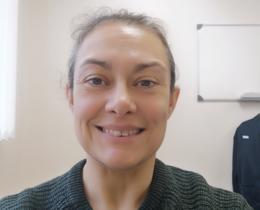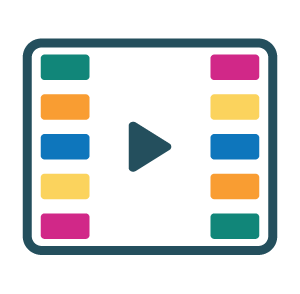Regardless of whatever new subject you are learning, there will be a secret language that they use… learn it and make your own glossary as you go to level the playing field.
Health & Social Care Research Across North East & North Cumbria.
Michelle Glascott's Research Story
Michelle Glascott's Research Story

Dr Michelle Glascott says...
"I often see my role as a connector between the humans who researchers want to find out more about, and those humans themselves taking charge and determining the course the research takes - what is important to them and demystifying academic parlance."
On this page
As a child I was always mad about science and how things worked, but it wasn’t until I started my mental health nurse education that I realised that science had two arms, and that uncovering lived experiences and phenomena was actually a real thing. This opened up a whole new dimension of enquiry and bizarrely helped to make me a better mental health nurse. I became more confident in challenging the dominant biomedical discourse and to advocate for patient narratives.
My first formal research experience was co-investigator in an evaluation of the clinical service I worked in, and was a form of participatory research called ‘user focussed monitoring’. In short, the patients who used the service designed their own evaluation tools and even interviewed one another, after some brief support to understand basic research principles. I loved it, and have been committed to co-produced research ever since. It inspired me so much that I applied for a Doctorate in Nursing Science and my thesis centred around exploring the lived experiences of men who had committed serious physical or sexual violence. This was a taboo subject at this time, and I was actively discouraged from pursuing research with this population. Turns out however, that not only could this group of individuals offer unique insights into their own lived experiences to shape future service provision, but they were also desperate for others to learn from the mistakes they (and services) had made, to avoid further suffering for everyone. The ethics committee had not expected that.
For me, these experiences of co-produced research are the most enjoyable, I often see my role as a connector between the humans who researchers want to find out more about, and those humans themselves taking charge and determining the course the research takes - what is important to them and demystifying academic parlance.
Whilst I have engaged in some really excellent research skills programmes, I have been most transformed when working alongside researchers who are passionate about their areas of interest, and who freely share their skills and enthusiasm. I have been lucky to have mentors and supervisors who have supported my growth, have not dismissed my lack of knowledge or experience and have allowed me to make mistakes and grow. So my advice is - yes, do the formal courses, but crucially get involved with researchers who inspire you and will take you under their wing and support your growing knowledge.
Dr Michelle Glascott's top 3 tips
Research can take a long time, pick a subject you deem worthy of hard work and feeling vulnerable.
Stick with research that has direct patient benefit, not about getting your name in lights… that will fill your soul and make tip 2 all the more worthwhile.
Was this page useful?
Add your feedback
There was an error submitting your feedback, please try again.
Thanks for your feedback, this will help our team improve your experience on the website




